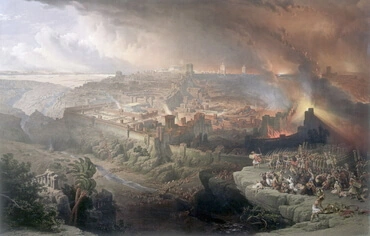1
E que’ di Chiriat-iearim vennero, e ne menarono l’Arca del Signore, e la condussero nella casa di Abinadab, sul colle; e consacrarono Eleazaro, figliuolo di esso, per guardar l’Arca del Signore.
2
OR lungo tempo appresso che l’Arca fu posata in Chiriat-iearim, che furono vent’anni, tutta la casa d’Israele si lamentò, gridando dietro al Signore.
3
E Samuele parlò a tutta la casa d’Israele, dicendo: Se pur voi vi convertite con tutto il vostro cuore al Signore, togliete del mezzo di voi gl’iddii degli stranieri, ed Astarot; ed addirizzate il cuor vostro al Signore, e servite a lui solo, ed egli vi riscoterà dalla mano de’ Filistei.
4
I figliuoli d’Israele adunque tolsero via i Baali e Astarot; e servirono al solo Signore.
5
Poi Samuele disse: Adunate tutto Israele in Mispa, ed io supplicherò al Signore per voi.
6
Essi adunque si adunarono in Mispa, ed attinsero dell’acqua, e la sparsero davanti al Signore, e digiunarono quel giorno; e quivi dissero; Noi abbiamo peccato contro al Signore. E Samuele giudicò i figliuoli d’Israele in Mispa.
7
Ora, quando i Filistei ebbero inteso che i figliuoli d’Israele s’erano adunati in Mispa, i principati de’ Filistei salirono contro ad Israele. Il che come i figliuoli d’Israele ebbero udito, temettero dei Filistei;
8
e dissero a Samuele: Non restar di gridar per noi al Signore Iddio nostro, acciocchè egli ci salvi dalla mano de’ Filistei.
9
E Samuele prese un agnel di latte, e l’offerse tutto intiero in olocausto al Signore. E Samuele gridò al Signore per Israele; e il Signore l’esaudì.
10
Ora, mentre Samuele offeriva quell’olocausto, i Filistei si accostarono in battaglia contro ad Israele; ma il Signore in quel giorno tonò sopra i Filistei con gran tuono, e li mise in rotta; e furono sconfitti davanti ad Israele.
11
E gli Israeliti uscirono di Mispa, e perseguitarono i Filistei, e li percossero fin disotto a Bet-car.
12
Allora Samuele prese una pietra, e la pose fra Mispa e la punta della rupe; e pose nome a quella pietra Eben-ezer; e disse: Il Signore ci ha soccorsi fino a questo luogo.
13
E i Filistei furono abbassati, e non continuarono più d’entrar ne’ confini d’Israele. E la mano del Signore fu contro a’ Filistei tutto il tempo di Samuele.
14
E le città, che i Filistei aveano prese ad Israele, ritornarono ad Israele; Israele riscosse dalle mani dei Filistei quelle città da Ecron fino a Gat, insieme co’ lor confini. E vi fu pace tra gl’Israeliti e gli Amorrei.
15
E Samuele giudicò Israele tutto il tempo della vita sua.
16
Ed egli andava d’anno in anno attorno in Betel, e in Ghilgal, e in Mispa, e giudicava Israele in tutti que’ luoghi.
17
Ma il suo ridotto era in Rama; perciocchè quivi era la sua casa, e quivi giudicava Israele; quivi ancora edificò un altare al Signore.







